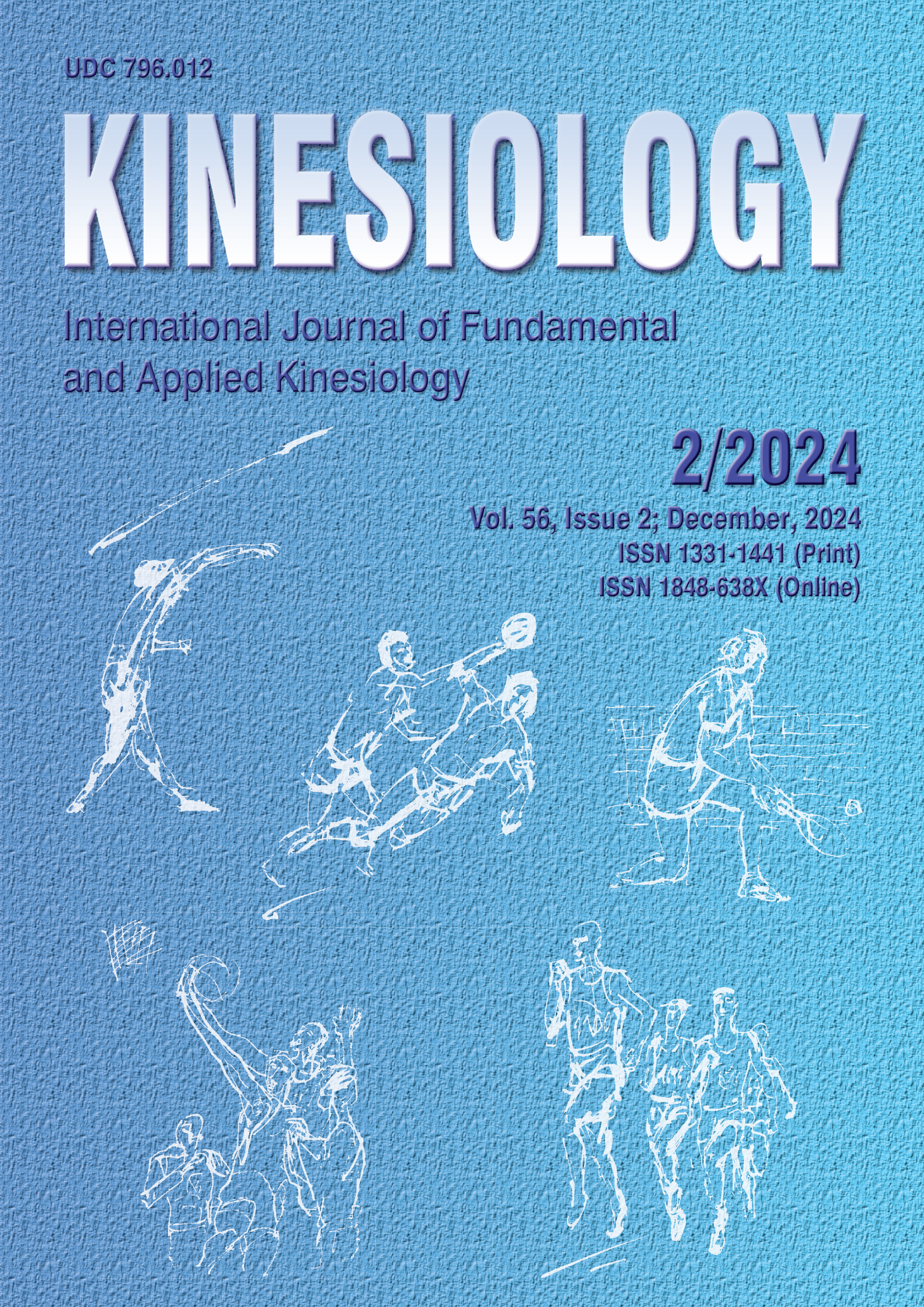THE EFFECTS OF OPPOSITION ON COLLECTIVE AND INDIVIDUAL BEHAVIOURS IN SOCCER: A SYSTEMATIC REVIEW
Keywords:
Football, Training sessions, Small-sided games, Decision-making, TacticsAbstract
Opposition in soccer is a determining factor for the success of collective and individual actions that are performed by the players to solve the problems of the game. Many studies studied the opposition in official matches and training and its impact on the dimensions of soccer. However, no previous review organised the literature about the effects of the opposition in soccer training. Therefore, this systematic review aimed to verify: i) the effects of the opposition on individual and collective behaviours in soccer training; ii) how was the level of the opposition established during training; and iii) how the variables were analysed and instruments utilized to measure those effects. The PRISMA guidelines were used to search five databases for relevant publications before 10th April 2023. The population was soccer players, and the outcome was any variable related to the tactical, technical, physical, and/or psychological dimension. In the end, there were thirteen studies included. Overall, the main results pointed out two ways to establish the opposition in soccer training: numerical relations and through teams’ composition according to players’ individual characteristics. Moreover, it is possible to affect soccer’s tactical, technical, and physical dimensions by establishing the opposition in different ways. Manipulating the opposition through numerical relationships can facilitate the exchange of passes and maintenance of ball possession, in the offensive phase, and generate greater commitment in attempts to recover possession of the ball in the defensive phase. Regarding the individual characteristics of the players, the effects of the opposition depend mainly on the variable used in organising the teams.
Key words: football, training sessions, small-sided games, decision-making, tactics
Downloads
Published
How to Cite
Issue
Section
License

This work is licensed under a Creative Commons Attribution-NonCommercial 4.0 International License.
At Faculty of Kinesiology we recognize that access to quality research is vital to the scientific community and beyond. Kinesiology is non-profit journal and all costs of publishing and peer review process are covered by the publisher itself or other funding sources like Ministry of Science and Education of the Republic of Croatia. Full text papers are also available free of charge at http://hrcak.srce.hr/kineziologija. There are no restrictions on self archiving of any form of paper (preprint, postprint and publisher's version).
Articles are distributed under the terms of the CC BY - NC 4.0
Kinesiology does not charge any fees to authors to submit or publish articles in our journal.


